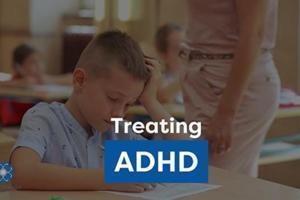![]() EXPERT
EXPERT
Dr. Nelson Handal
Psychiatrist
An expert in his field, Dr. Handal has contributed extensively to clinical research and is a renowned national consultant and speaker. He has developed the CliniCom Psychiatric Assessment Software to enhance mental health care quality, showcasing his dedication to integrating technology with clinical practice. Dr. Handal's innovative work has been featured in Business Week and recognized by the U.S. House Committee on Veterans’ Affairs.
- Dothan, AL
- University of Miami School of Medicine
- Accepting new patients
Diagnosis Demystified | Benefits of Play Therapy | Nelson M. Handal, MD, DFAPA
Play Therapy and Integrated CareIntroductionBehavioral challenges in children can significantly impact their emotional, social, and academic development. Addressing these concerns...
Health in Focus Series | Pervasive Developmental Disorders | Nelson M. Handal, MD, DFAPA
Understanding Pervasive Developmental Disorder (PDD): What You Need to KnowPervasive Developmental Disorder (PDD) is a term used to describe a group of developmental delays that...
Patient Education Series | Recognizing Trauma in Children and Adults | Nelson M. Handal, MD, DFAPA
Understanding Childhood Trauma: Signs, Symptoms, and HealingChildhood experiences often shape who we are, but for some, traumatic events in early life leave lasting imprints well...
Spotlight Video | Treating ADHD | Nelson M. Handal, MD, DFAPA
Attention-deficit/hyperactivity disorder (ADHD) is a common condition that often begins between ages 3 and 6 and can persist through adolescence and adulthood. It comes in three...
Spotlight Video | Signs Of Autism In Children | Nelson M. Handal, MD, DFAPA
Dr. Nelson M. Handal is a board-certified child and adolescent psychiatrist who is the Medical Director of Dothan Behavioral Medicine Clinic in Dothan, Alabama. Dr. Handal is...
Understanding the Overlap of ADHD with Depression and Anxiety
Nelson M. Handal, MD, DFAPAJune 28th, 2024Depression and Anxiety in the Context of ADHDDepression and anxiety disorders often occur alongside attention deficit hyperactivity disorder...
Can social anxiety disorder be fixed?
1. Cognitive-Behavioral Therapy (CBT) CBT is the most researched and effective therapy for social anxiety. It helps people identify and change negative thought patterns and behaviors that contribute to their anxiety. Exposure Therapy, a subset of CBT, involves gradually facing feared social situations to reduce anxiety over time. This could start with low-anxiety situations and progress as confidence builds.
2. Acceptance and Commitment Therapy (ACT) ACT encourages accepting anxiety as part of life and focuses on engaging in meaningful activities, even with anxiety present. It helps people live more aligned with their values rather than being limited by fears.
3. Medication Selective Serotonin Reuptake Inhibitors (SSRIs) like sertraline or paroxetine are commonly prescribed for social anxiety. They help balance serotonin levels, which can improve mood and reduce anxiety. Beta-blockers (such as propranolol) can be helpful for short-term management of performance-based anxiety, such as public speaking. Benzodiazepines may be used in the short term, though they are typically prescribed with caution due to potential dependency.
4. Mindfulness Meditation and Relaxation Techniques Mindfulness practices teach individuals to stay present and reduce anxious thoughts. Techniques like deep breathing, progressive muscle relaxation, and visualization can help manage anxiety in the moment.
5. Lifestyle Changes and Self-Care Regular Exercise: Physical activity can lower anxiety levels by releasing endorphins and improving mood. Sleep and Diet: Good sleep hygiene and a balanced diet support mental health and reduce overall anxiety. Reducing Caffeine and Alcohol: Both can increase anxiety symptoms, so moderating intake may be beneficial.
Nelson Handal MD










